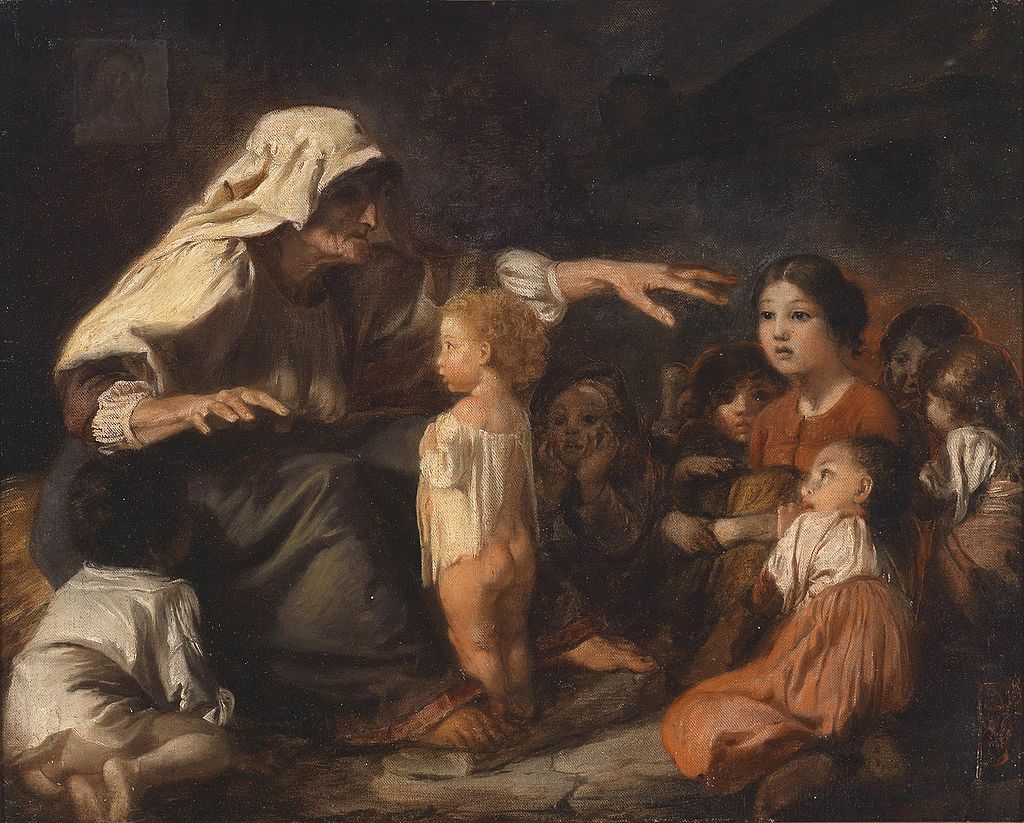By Lacey Gunter
I had the privilege of attending a local storytelling festival this week, the Timpanogus Story Telling Festival. I have wanted to attend for a few years and it was as fun and delightful as I expected it would be. The festival features many seasoned story tellers, a good portion of which are also authors, and several young budding story tellers.
One of the stories told was a fable about the origins of storytelling. The story encouraged me to reflect on the role of stories in our personal lives, in our community and in our culture.
Each of us have our own internal stories we tell ourselves and those around us. They can be as simple as how we learned a certain skill and as complex as a long and bumpy road toward motherhood. They shape who we are and what we become. They affect our outlook and how we interpret and react to interactions with others.
Long before people where commonly able to read and write, the tradition of oral story telling was used to teach and shape the people who heard them and they way they behaved and made choices. These stories had the power to spark strong emotional reactions, help us understand the mysteries in the world around us, transfer vast amounts of practical knowledge, connect people from drastically divergent backgrounds or even lead entire nations of people to war.
To understand the importance of stories, one need look no further than the Bible. Suggestions, instructions, rules and commandments are simply not enough to move human nature toward a better way of thinking and acting. God knows this and so do we. It is only through the sharing of historical narratives, allegories, parables, poems and songs that we begin to understanding and internalize the lessons of human nature, the laws of God and the effects of our choices.
Knowing the profound affect stories have on ourselves and our society, how important it is for us as writers to carefully select the stories we listen to, reinforce and share with ourselves, the people around us and society at large. There are far too many story tellers willing to strip us down to our lowest common denominators just to make a quick buck or get a little attention. We need more stories that inspire, uplift, and enlighten. We need stories that encourage us to magnify our better parts. It is our responsibility to write these stories and share them with the world. Writing is more than just a fun hobby. You have the power the change the world. Be sure you're changing it into the kind of place you would want to inhabit.
I had the privilege of attending a local storytelling festival this week, the Timpanogus Story Telling Festival. I have wanted to attend for a few years and it was as fun and delightful as I expected it would be. The festival features many seasoned story tellers, a good portion of which are also authors, and several young budding story tellers.
One of the stories told was a fable about the origins of storytelling. The story encouraged me to reflect on the role of stories in our personal lives, in our community and in our culture.
 |
| Spannende Geschichte. Öl auf Leinwand, Provenienz: Nachlass Clemens von Franckenstein (1875-1942); Wikimedia Commons / Public Domain |
Each of us have our own internal stories we tell ourselves and those around us. They can be as simple as how we learned a certain skill and as complex as a long and bumpy road toward motherhood. They shape who we are and what we become. They affect our outlook and how we interpret and react to interactions with others.
Long before people where commonly able to read and write, the tradition of oral story telling was used to teach and shape the people who heard them and they way they behaved and made choices. These stories had the power to spark strong emotional reactions, help us understand the mysteries in the world around us, transfer vast amounts of practical knowledge, connect people from drastically divergent backgrounds or even lead entire nations of people to war.
To understand the importance of stories, one need look no further than the Bible. Suggestions, instructions, rules and commandments are simply not enough to move human nature toward a better way of thinking and acting. God knows this and so do we. It is only through the sharing of historical narratives, allegories, parables, poems and songs that we begin to understanding and internalize the lessons of human nature, the laws of God and the effects of our choices.
Knowing the profound affect stories have on ourselves and our society, how important it is for us as writers to carefully select the stories we listen to, reinforce and share with ourselves, the people around us and society at large. There are far too many story tellers willing to strip us down to our lowest common denominators just to make a quick buck or get a little attention. We need more stories that inspire, uplift, and enlighten. We need stories that encourage us to magnify our better parts. It is our responsibility to write these stories and share them with the world. Writing is more than just a fun hobby. You have the power the change the world. Be sure you're changing it into the kind of place you would want to inhabit.

Yes a good story can be amazing and not everyone can tell a good story
ReplyDelete